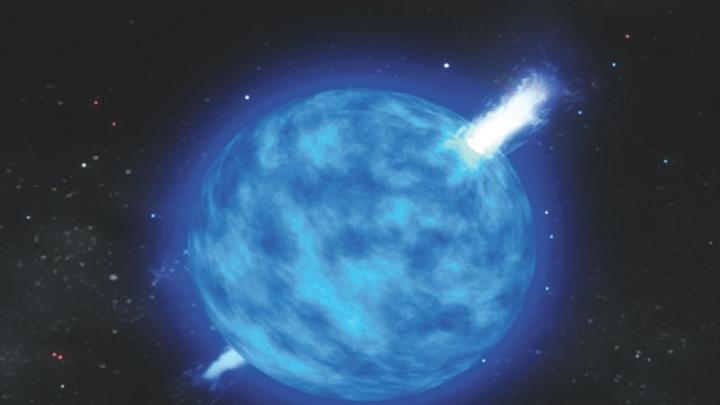Roosevelt’s Purge: How FDR Fought to Change the Democratic Party, by Susan Dunn, Ph.D. ’73 (Harvard, $27.95). The author, professor of humanities at Williams, dramatically narrates FDR’s 1938 campaign to defeat conservative senators who helped to thwart New Deal bills. His intervention in Democratic primaries didn’t go well, but it did prefigure the realignment into the more ideologically pure parties that dominate (and divide) Washington now.
How Did the First Stars and Galaxies Form? by Abraham Loeb, professor of astronomy (Princeton, $24.95 paper, $75 cloth). A small book (169 pages) on a large subject: the first billion years of cosmology. “I get paid to think about the sky,” Loeb writes engagingly--but there’s no escaping the physics and math.
Music at the End of Life, by Jennifer L. Hollis, M.Div. ’03 (Praeger, $44.95). Harvard Divinity School’s assistant director of admissions explores the role of music in hospice and palliative care (“easing the pain and preparing the passage,” per the subtitle), the subject of the emerging field of music-thanatology.
The Lowering of Higher Education in America, by Jackson Toby, Ph.D. ’50 Praeger, $34.95). The retired Rutgers professor maintains that need-based financial aid makes education an entitlement, but erodes standards. Federal aid, he argues, must be tied to academic performance as well.
The Decline and Fall of the American Republic, by Bruce Ackerman ’63 (Harvard, $25.95). Yale’s Sterling professor of law and political science devoted his 2010 Tanner Lectures, at Princeton, to the untoward consequences of “triumphalist” constitutional thought, including his own, and what he sees as the “clear and present danger” now posed by America’s too-powerful presidency.
The Frugal Superpower: America’s Global Leadership in a Cash-Strapped Era, by Michael Mandelbaum, Ph.D. ’75 (PublicAffairs, $23.95). It’s easy to be powerful (if not loved) when rich. But what happens when the chief guarantor of world security becomes less so? The author, of Johns Hopkins School of Advanced International Studies, sees a more modest U.S. profile, and less imported oil.
Death in the New World, by Eric R. Seeman ’89 (University of Pennsylvania, $45). The ubiquity of death and common responses to it--belief in an afterlife, care for the corpses--facilitated understanding among Indian, European, and African peoples. Seeman, at SUNY-Buffalo, explores the cultures crossing, 1492-1800.
Reshaping the Work-Family Debate: Why Men and Class Matter, by Joan C. Williams, J.D. ’80 (Harvard, $29.95). The director of Hastings College of the Law’s Center for WorkLife Law argues that women don’t just opt out of careers, that men are disadvantaged by work norms, and that the prevailing gridlock requires new thinking.
The Leafcutter Ants, by Bert Hölldobler and Edward O. Wilson, Pellegrino University Professor emeritus (Norton, $19.95 paper). The foremost myrmecological coauthors collaborate again, on a visually stunning illustration of the species that, they show, demonstrates “civilization by instinct.”
Dreaming in Chinese, by Deborah Fallows ’71 (Walker, $22). The author, plunging into life in China (with husband/journalist James Fallows ’70, to whom she dedicates the book), self-deprecatingly recounts her “Mandarin Lessons in Life, Love, and Language” (the subtitle)--from mastering a soap opera to being able to chew out a cabbie for overcharging.
Just Like Someone Without Mental Illness Only More So, by Mark Vonnegut, M.D. ’79 (Delacorte, $24). A memoir about growing up with a suddenly famous parent, and coping with one’s own psychoses, alcohol dependence, and pediatric practice.
The Two Faces of American Freedom, by Aziz F. Rana ’00, Ph.D. ’07 (Harvard, $29.95). A dense, textured, and bold interpretation of American constitutionalism and political culture, disentangling the themes of freedom, subordination, and empire, by an assistant professor of law at Cornell.
The Intelligent Entrepreneur, by Bill Murphy Jr. (Henry Holt, $27.50). A journalistic account of start-up success, as taught at Harvard Business School, through the experiences of three ’98 M.B.A. graduates: Marla Malcolm Beck (also M.P.A. ’98, Bluemercury cosmetics); Marc Cenedella (TheLadders.com job search); and Chris Michel (military.com).










